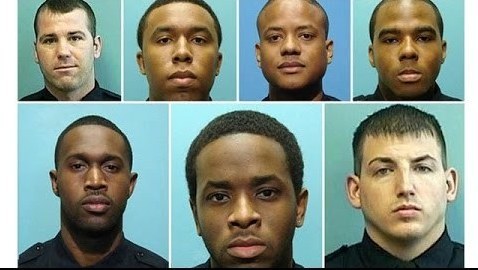[ad_1]
By Stephen Janis, Special to the AFRO
A police department seemingly overwhelmed by charges of misconduct was hit with a new controversy, after a scathing audit of overtime spending was released to the public.
The report recounts a culture of indifference towards monitoring attendance and even determining if the hours submitted by officers were actually worked. It revealed a department where employees didn’t have to show for roll call or justify overtime spending to supervisors.

crimes. Baltimore is still struggling with skyrocketing lawful overtime payments to members of the Baltimore Police
Department. (Courtesy Photo)
The report also painted a picture of an agency that city officials say is ill-equipped to monitor its work force or rein in costs that have been rising for years.
“Is there overtime abuse, I believe so, do we have the number of officers in the police department we should, absolutely not,” Mayor Catherine Pugh said shortly after the audit’s release.
Among other findings was that the Fraternal Order of Police, the powerful police union, negotiated a remarkably favorable contract for its members; an agreement the report cited, which Includes a provision that allows officers on vacation to be credited for work for a few hours an earn overtime.
“If an officer is on vacation all week, but makes a four-hour court appearance, the four hours of court time is paid as overtime even though the officer worked no other hours during the work period,” the report stated.
The audit also dispelled the notion that most overtime spending is attributable to a shortage of patrol officers, noting that forty percent of the top 25 overtime earners were not assigned to patrol.
“The internal controls are insufficient to ensure that overtime expenditures are necessary and appropriate,” said City Finance Director Henry Raymond.
The audit provided fresh proof that the abuse of overtime recounted in numerous scandals, including the Gun Trace Task Force whose members pleaded guilty to stealing overtime, is rampant. But, in remarks shortly after the audit’s release, Raymond said it was not clear if the department had established controls to stop it.
“It’s undetermined whether the present internal controls can prevent waste, fraud and abuse of overtime,” Raymond said.
Overtime spending has climbed form $23 million in 2013, to $47 million in 2018. During that period, the police department has spent roughly $180 million on overtime. Meanwhile, crime has risen steadily, prompting council members to pushback on what they say is an out-of-control expense.
Councilman Brandon Scott (D-2), chairman of the Public Safety Committee says the audit bolsters his argument that the council needs more power to oversee the police department. Currently the police department is a state agency.
“It’s very troubling,” Scott said. “But without having authority on the council to implement changes all we can really do is yell and scream.”
Scott’s frustration was echoed by his colleague, Councilman Ryan Dorsey (D-3). Dorsey has been in an ongoing battle with the police department over patrol staffing.
Earlier this year he obtained documents that revealed patrol had 1,750 positions budgeted and filled, but on any given day only roughly 900 officers were assigned to patrol duties; evidence he says that the primary argument for overtime spending is driven by a shortage of patrol officers does not hold up.
“The department has the people to do the work but they refuse to put them in position to be effective,” Dorsey said.
The report recommends the city invest in technology to monitor attendance and overtime spending, including biometric time clocks that are activated only by fingerprints, and GPS tracking devices placed on all patrol and take-home vehicles used by officers.
One question that loomed over the release of the audit was accountability.
Like past scandals, few if any command staff had been singled out or disciplined. When asked who she would hold accountable for overtime abuse, Pugh said, “The next police commissioner.”
[ad_2]
Source link

